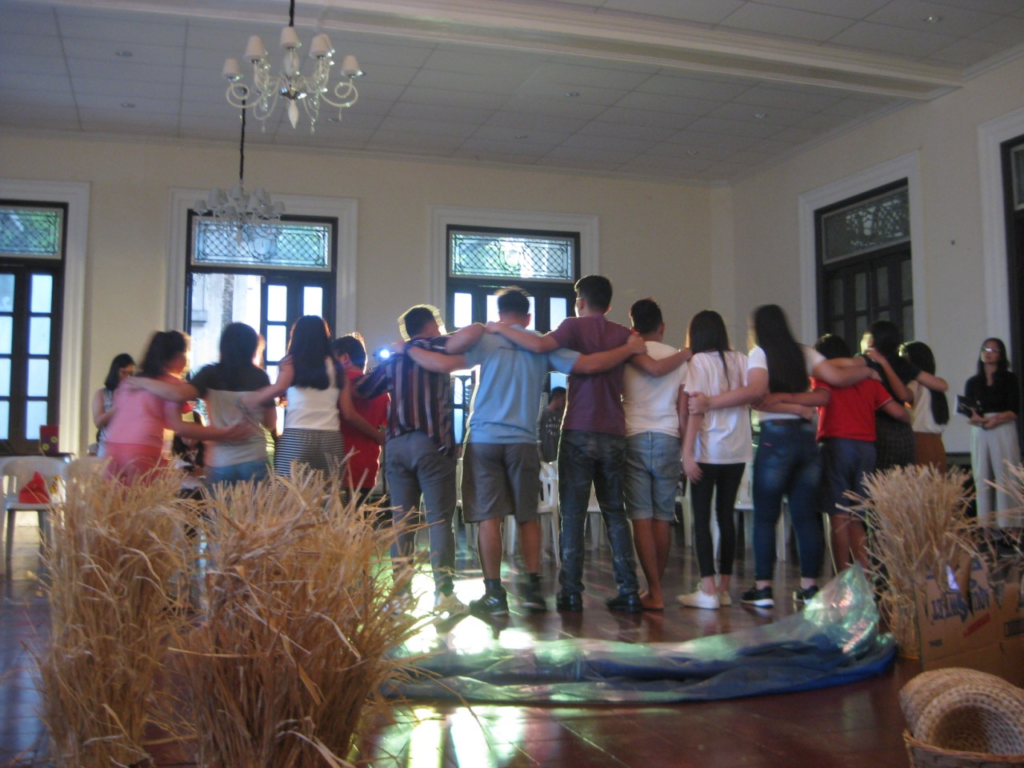By Rod Penalosa, Phd, LMFT COHCS Co-Founder
Kapwa is the Filipino core value that recognizes the intrinsic nature of theFilipino self’s relationship to others. It defines the depth of our social andrelational responsibility to one another, a value of human connection andcompassion that is inherent in the heart and psyche of our Filipino personhood.
Kapwa extends itself to others, beginning with one’s family, and followed thereafter by every human being that we encounter in our journey throughout life. Pakikipagkapwa- tao is the holy act that breathes life to the spirit of kapwa through the recognition of our shared humanity, andto extend this kinship and accountability from the self to others and from family to strangers. According to Katrin De Guia (2005), “Kapwa is a Tagalog term used when addressing another with the intention of establishing a connection. It reflects a viewpoint that beholds the essential humanity recognizable in everyone, therefore linking (including) people rather than separating (excluding) them from each other.”
In 2015 a blessing graced me with the opportunity to co- develop a mental health program with two other colleagues, Dr. Joanna Herrera and Dr. Carlo Pizarro, for the purpose of serving the underprivileged adolescent cancer patients, and their families, at Philippine General Hospital. The goal was to help the marginalized, therefore we framed our practice through the co-participatory process of kapwa to honor the indigeneity, identity, and experience of the Filipino in addressing and assessing the totality of their mental health and well-being.
During the development of the program’s model of care it became evident to us that certain intrinsic cultural values are extremely significant principles in responding to pain and suffering. Pananampalataya, or faith in God, is multi- dimensional and illustrates the intersecting dynamics of culture, religion, and human connection among Filipinos. Pananampalataya and pakikipagkapwa-tao continue to strengthen the sense of community visibility and belonging of everyone who becomes part of our healing movement through compassion, not only for the patients and their families, but for every human soul who hears and responds to the call.
Doetsch-Kidder (2012) said, the practice of shared humanity involves recognizing and accepting our connections with all human beings—even with those whom our human consciousness assumes are different from us— as well as completely accepting ourselves unconditionally, including the parts of our identities that we have compartmentalized and hidden. In the midst of poverty, helplessness, grief, and loss in this environment, I found the very essence of life and what it means to live. The palpability of unconditional love and acceptance can be profoundly experienced in the Circle of Hope community. It is not religion, or the practice itself, that sustains our hope and resiliency, but it is the depth of our faith in the sacred and the unseen that contains and fortifies us. It is in learning to surrender and let go of the need to be in control that we are held lovingly and tenderly.
In this community, I have come to witness the prevalence and strength of faith, resilience, compassion, and unconditional love of my kapwa, many of whom may be poor in financial resources but extremely affluent in hope and optimism to live, to love, and to survive. I discovered the grace of finding meaning, value, and purpose in pain and suffering. I felt the presence of God in each and every one of them: the patients who have survived and those who lost the battle, their parents and families, the doctors and nurses, the counselors and psychologists, the donors and volunteers. Neither cancer, poverty, nor helplessness weakened their faith or their capacity to love. The need to depend on something or someone much larger, more powerful, and in control, when the frailty of their humanity beginsto take over, speaks to the fortitude of their faith in God, the strength of their trust in one another, and in reaching within themselves to harness their personal power as vital parts of survival. This is kapwa. This is compassion. This is who we are.
“Pakikipagkapwa- tao is the holy act that breathes life to the spirit of kapwa through the recognition of our shared humanity… “
